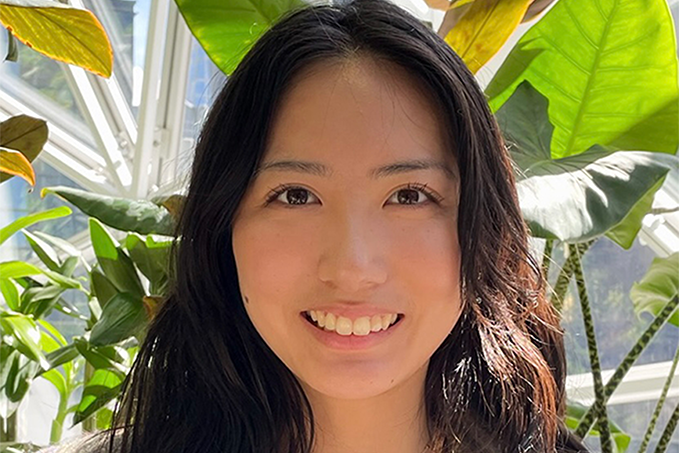Alyssa Suzukawa

Biography
Alyssa Suzukawa (she/her) is a graduate student studying urban planning at the UCLA Luskin School of Public Affairs. She is interested in the relationship between transportation and housing, including understanding the impacts of transit-oriented development in communities of color. Born and raised in Los Angeles, she is concerned about issues of gentrification and displacement, housing affordability, and the car-centric urban landscape of the city. She is motivated to amplify community perspective and interest through her work with spatial analysis to galvanize change.
Prior to UCLA, Alyssa worked at the California Public Utilities Commission (CPUC) and has assisted research for UC Berkeley’s Urban Displacement Project analyzing unintended effects of climate change mitigation on neighborhoods. She holds bachelor’s degrees in Environmental Economics & Policy and Urban Studies with a minor in Sustainable Design from UC Berkeley. She hopes to use this background to provide community-led solutions that forward climate goals.
Project Overview
This project aims to investigate transportation access and travel patterns from the perspective of carless and car-deficient households in the City of Los Angeles. Project research will be guided by the following questions: What are the travel patterns and mobility challenges faced by carless/car-deficient households in Los Angeles, particularly in areas characterized as mobility deserts? How do these patterns impact access to essential services like grocery stores and health care facilities? Furthermore, based on an analysis of travel patterns and barriers of carless/car-deficient households in mobility deserts, what targeted program and place-based solutions can LADOT invest in to enhance mobility options and improve overall quality of life in Los Angeles?
Why is this topic, specifically, important to you?
This project focuses on carless and car-deficient households that have experienced travel hardship and challenges while traveling to their destinations from their lack of access to a private vehicle. With the advent of the automobile, the prioritization of cars over people by public agencies has paved the way for an urban landscape and form that is overwhelmingly car-centric. Being “carless” in Los Angeles, or without access to a private vehicle, is a decision bound by constraint for many and significantly impacts an individual’s access to jobs, essential services, and opportunities. As someone who continues to traverse the city without a car under similar circumstances, I am interested in how other households perceive mobility where they live and what sort of insight they may have toward improving accessibility and overall quality of life in the city without a car.
Who are the partners involved in this project and how will you be working with them?
The Los Angeles Department of Transportation (LADOT) is a local agency that leads transportation planning, project delivery, and operations in Los Angeles. By identifying travel patterns and barriers to essential resources and services, this research seeks to propose place-based projects and program initiatives for LADOT to improve mobility for carless and car-deficient households. These efforts are supported under their adopted Universal Basic Mobility (UBM) approach which seeks to eliminate the functional and/or structural immobility people experience due to racism and other systemic marginalization, cost burdens, and other forms of exclusion.
How do you hope that this project will impact the field moving forward?
As transportation investment turns toward supporting other modes of travel like transit to meet climate goals and address historic harms in communities of color, public investment resurfaces community trauma and helplessness against city-sanctioned infrastructure — like the construction of freeways and rail — that have been built through redlined neighborhoods during eras of urban renewal. Negligence of community input in the planning process concerning direct and indirect forms of displacement is met with community skepticism and pushback toward what the city hopes to achieve. This project provides an opportunity to use qualitative analysis to place community input at the forefront of research. I specifically aim to push a more nuanced and cautious perspective of what the community needs in a professional and academic space that has excluded them for so long. I hope these findings are used to inform future decision-making of LADOT and that public agencies encourage greater participatory planning practices moving forward.
Fellow at a Glance
FELLOWSHIP YEAR
ACADEMIC BACKGROUND
PROJECT TITLE
